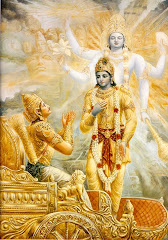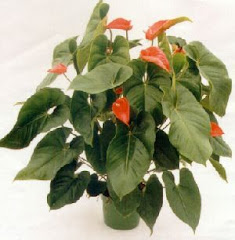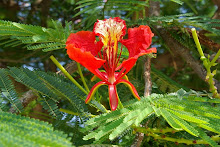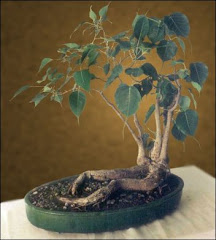
'Paimana Bideh' is a gem of a track. Originally a Pasthun/Darri folk song, the girls (Zeb and Haniya) get everything right here. It's the kind of track you'd want to listen to after a long tiring day at work. With its almost lullaby-like vocals and careful use of the trumpet by Hildegunn Øiseth (an established Norwegian Jazz musician), this track is about yearning and love, and is the perfect number. Hildegunn's use of the horn... in this number, is fantastic. It draws to a whispery close all too soon! This traditional folk song is sung in Pashto and Dari and it brings home the charm of great world music: that it even strikes a chord with someone who does not understand the language.
Given the unfortunate signs of our times... I thought it would be appropriate if I began this post with a beautiful song rendered by Abrar-ul-Haq - "Tere Rang Rang".
You can view the video HERE. A lovely song indeed! The video is a must watch!
The complete lyrics of this fabulous song can be read: HERE. It is an Urdu-Sufi kalam. Download link: HERE.
Since we are talking about poetry... let me quote the great Mirza Ghalib (1797-1869): "Hazaron khwahishein aisi ke har khwahish pe dumm nikley." [Meaning: that I have a thousand wishes and the uncontrollable desire to fulfil each one of them]. Wonderful words, indeed.
For those of you who have listened to this song (Paimana Bideh) and fallen under its spell... let me just add that the original poetry (in Pashto/Dari language) is by the great Persian polymath, astronomer, poet and mystic Omar Khayyám (1048-1123/1131). Following is the complete lyrics with english translation. The new translation is based on the earlier translation. You can even find the urdu translation in that link.
Paimona bedah key khumar astam
Man ashiq e chasm e mast e yaar astam
(Bring me the chalice, so I may lose myself,
I'm in love with my Beloved's intoxicating Gaze).
Chashmat key bagh e khutan memanaat
Royat ba gulab haye chaman memanaat
(Your Eyes light up my secret garden
Your Face lights up every rose therein).
Gul roo ba kuneed waraq waraq boyee kaanee
Ba lalazar e be watan me yaraat
(Face like a flower, it give petals their fragrance
The land of my Beloved is placeless).
Man ashiq e chasm e mast e yaar astam
Bedeh bedeh kay khumar astam
Paimona bedah key khumar astam
(I'm in love with my Beloved's intoxicating Gaze,
Bring! Bring! So I may annihilate myself.
Bring me the chalice, so I may lose myself).
Az O madanet ager khaber me dashtaam
Pesh e qadamat kocha ragul me kashtaam
(If I hear of Your sacred arrival,
Under Your feet, I will spread a carpet of flowers).
Gul me kashtam gul e gulab me kashtam
Khak e qadamt padi dam e war dashtaam
(Spread flowers, Spread rose flowers,
I will sacrifice myself at the dust of Your feet).
Paimona bedah key khumar astam
Man ashiq e chasm e mast e yaar astam
(Bring me the chalice, so I may lose myself,
I'm in love with my Beloved's intoxicating Gaze).
Symbology of "Wine" and "Beloved's Intoxicated Gaze": In Sufi poetry and music... a much used symbol is "Wine" and "Beloved's Gaze".
The Sufis define their relationship with God through "Love" and thus their favorite name for God is "Beloved". No wonder some medieval European writers thought of the Sufis as the lost and hidden Esoteric Christians in disguise... since Christ's teachings and the Sufi doctine of love are so strikingly similar.
"Beloved's Intoxicating Gaze" is an imagery used to mean the special grace that falls upon the heart of the devotee that give rise to God realization or recognition of God and brings bliss of the soul's loving self-surrender.
For some its a surprise that despite intoxication or strong drink being prohibited in the Scripture, yet the imagery of wine is found in the works of many Sufis... even though they themselves never touched wine or any other intoxicating drink.
The great Sufi teacher Hazrat Inayat Khan (1882-1927) wrote: "What makes the soul of the poet dance? Music. What makes the painter paint beautiful pictures, the musician sing beautiful songs? It is the inspiration that beauty gives. Therefore the Sufi has called this beauty sāqī , the divine Giver who gives the wine of life to all.
In the imagery of the Sufi poets, this tavern is the world, and the sāqī (wine giver) is God. In whatever form the wine-giver comes and gives the wine, it is God who comes. In this way, by recognizing the sāqī , the wine-giver, in all forms, the Sufi worships God. He recognizes God in friend and foe as the wine-giver."
About losing oneself, about becoming annihilated by the intoxicating divine wine, the 13th-century Persian poet and Sufi mystic Rumi said it beautifully, "Dissolve like sugar in water before the Beloved."
The mystic desires that which Omar Khayyám calls wine, the wine of Christ, after drinking which, no one will ever thirst. (:: Bowl of Saki, by Hazrat Inayat Khan).
1. Omar Khayyám - In Praise of Wine - LINK.
2. Khayyám's poetry (with persian music and english translation) - Do not Reproach Lovers - LINK.
Khayyám I believe is saying... live your life to the fullest but be ready for death whenever it comes. Echos of it can be found in Alfred, Lord Tennyson's celebrated poem "Ulysses".
"Ulysses" is a dramatic monologue (since Ulysses is the only speaker throughout the poem) about an old man who loves to travel and remain active. He is unhappy and dissatisfied as a king and is speaking of his love for travel and dislike for redundancy. Ulysses would rather "Drink life to the lees" (lines 6-7). This means: he wants to get all he can... from life. Keeping this in mind, he gives the throne to his son, Telemachus (who would appreciate it more than him). Then he sails off to enjoy the final voyage of his life. Tennyson uses the theme of desire. "Ulysses'" entire speech is about wanting to travel rather than be idle (and be a king). Tennyson's poem is filled with connotative language. The poet writes about enjoying life to the fullest. Every moment of it. "From that eternal silence, something more". Ulysses also makes allusions to Achilles.
In "Ulysses" Tennyson explains his philosophy of life through the words of the lone speaker, the Greek hero, Ulysses. According to Tennyson, the purpose of life is to remain active. One should not waste time waiting for death. That would make life dull. He explains the brevity of life and urges the readers to devote themselves to action and make their life worth living.
In Urdu, a whole lot of ideas are expressed with the help of 'intoxication'... propping up suffering as a metaphor. It's not meant to be taken literally. Omar Khayyám used words like 'maikhana' to stand for 'the world as a whole' and 'paimana' to mean 'a glass brimming with life'.
"Here with a Loaf of Bread beneath the Bough,
A Flask of Wine, a Book of Verse--and Thou
Beside me singing in the Wilderness--
And Wilderness is Paradise enow."
-- Omar Khayyám, The Rubáiyát, Quatrain XI
The Persian poet, philosopher, mathematician and astronomer - Omar Khayyám - is probably the most famed of all Persian poets in the West, ever since Edward FitzGerald translated the Rubáiyát in Victorian 19th century. This profoundly influenced the West's perception (or misperception) of Persia in the turn of the century. In fact as unusual as it may seem, one of the original manuscripts of the Rubáiyát was carried aboard the RMS Titanic and was to disappear with the doomed liner under the sea... never to resurface again.
The Rubáiyát of Omar Khayyám, (rendered into English Verse by Edward FitzGerald) can be viewed HERE. Alternative links: 1. HERE and 2. HERE.
A Persian ruba'i is a two line stanza with two parts (or hemistechs) per line, hence the word "Rubáiyát", (derived from the Arabic root word for 4), meaning "quatrains". The nature of a translation very much depends on what interpretation one places on Khayyám's philosophy. The fact that the Rubáiyát are a collection of quatrains - and may be selected and rearranged subjectively to support one interpretation or another - has led to widely differing versions.
"Ah Love! could you and I with Him conspire
To grasp this sorry Scheme of Things entire,
Would not we shatter it to bits--and then
Re-mold it nearer to the Heart's Desire!"
-- Omar Khayyám, The Rubáiyát, Quatrain XCIX
Here is a video... with haunting, heart-rending music. Quite akin to Khayyám's intensely passionate poetry. It is from the very depths of the eternal soul. Fatalistic, yes, but so beautifully stunning, in my opinion... with the whirling dervish and the divine music. The link is: HERE.
With them the Seed of Wisdom did I sow,
And with my own hand labour'd it to grow:
And this was all the Harvest that I reap'd--
"I came like Water, and like Wind I go."
-- Omar Khayyám, The Rubáiyát, Quatrain XXVIII
1. "The Rubáiyát of Omar Khayyám" (Part 1) by Richard Le Gallienne (reading): LINK 1
2. "The Rubáiyát of Omar Khayyám" (Part 2) by Richard Le Gallienne (reading): LINK 2
Magnifique! Verses about how one must accept the transience of all sublunary things.
None answer'd this; but after Silence spake
A Vessel of a more ungainly Make:
"They sneer at me for leaning all awry;
What? did the Hand then of the Potter shake?"
-- Omar Khayyám, The Rubáiyát, Quatrain LXIII
These lines are from the very first edition/publication (in 1859) of the "The Rubáiyát of Omar Khayyám" translated by Edward Fitzgerald - "The Potter's House" - LINK.
Of course, we too are made of clay. "All this of Pot and Potter - Tell me then, Who is the Potter, pray, and who the Pot?"
And strange to tell, among that Earthen Lot
Some could articulate, while others not:
And suddenly one more impatient cried--
"Who is the Potter, pray, and who the Pot?"
-- Omar Khayyám, The Rubáiyát, Quatrain LX
FitzGerald himself called this a "transmogrification" rather than a "translation" - he made up much of it. There were five editions - this is from the first.
Here is another LINK. These verses (from "The Rubáiyát of Omar Khayyám" by Edward FitzGerald) were cherry-picked from all the five editions, not in order. The pictures are mostly photographs of plates by Edmund Dulac.
Omar Khayyám is a true legend and his poems sound wonderful everywhere and in any language. To have these beautiful lines running through one's mind throughout the day/evening/night, is, in a word, heavenly. What the 'cowboys' and their cronies are doing to this great land/region (Persia: present-day Iran) we are all aware of. Not to be left behind, Hollywood also did its bit... with the Gerard Butler starrer "300".
Note: Some info gathered courtesy, Wikipedia.
More info on Hazrat Inayat Khan - the exemplar of Universal Sufism and founder of the Sufi Order International: HERE.
Photograph:
Illustration by Arthur Szyk for the 1940 edition of "The Rubáiyát of Omar Khayyám". Pic courtesy: Wikipedia.














wow.. dis is superb....:O
ReplyDeletehow d hell u hunt for such things???
Upon reading the first part, I downloaded the entire album 'Chup!' Most of them are good, and Paimana Bideh is exceptional. I did find out the lyrics and translation too. Beautiful!
ReplyDeleteThanks a lot - again! :)
And about this post, about Omar Khayyam: Well, I'm not into poetry. You know, I can always read lengthy proses, but not four lines of poetry. ha ha.. :D
Anyways come up with another post soon. :)
Well researched and informative post.
ReplyDeleteThe beauty of Sufi culture lies in its focus on love and humanity rather than stressing on religion. The distillation of the thought can be linked to sermons of Guru Nanak Dev and Kabir.
@ Sid: Glad you liked it :)
ReplyDeleteJust listen to the great Omar Khayyám's Rubáiyát... it'll trasport you to a different world altogether.
P.S. I have provided the links for downloading the "The Rubáiyát of Omar Khayyám"... as well as the links to the videos (where this book is being read by Richard Le Gallienne). Enjoy!
@ Karthik: Great! Yes, 'Chup' is a good album... I agree.
ReplyDelete'Paimana Bideh' is a gem of a track. The original poetry (in the Pashto/Dari language) is by the great Persian polymath, astronomer, poet and mystic Omar Khayyám.
So... I couldn't possibly have written a post on 'Paimana Bideh' without writing about Khayyám. Could I... ?!! :)
I have provided the link to another song 'Tere Rang Rang'... in the post. The video is a must-watch.
There are 2/3 links... to Khayyám's poetry (with persian music playing in the background). You may like them.
P.S. I have also provided the links to the videos (where "The Rubáiyát of Omar Khayyám" is being read by Richard Le Gallienne). Enjoy!
@ Sunil: I agree with you, Sunilji.
ReplyDeleteUnfortunately, the thoughts behind Sufism and the Sufi culture... are fast becoming extinct. This should not be allowed to happen.
It is amazing how vast a range you cover in your posts.
ReplyDeletemust listen to sufi songs now! excellent post as always. u should really participate in avant garde contest.
ReplyDelete@ BK Chowla: Thank you Chowlaji :)
ReplyDelete@ Reema: Yes Reema... you must listen to these lovely songs.
ReplyDeleteAs for the contest... lets see. Somebody will have to do the honours of nominating it, I guess.
P.S. It says only those blogs which has been written b/w 1st Jan '09 through to Dec '09 will be accepted. My blog began after mid-Jan.